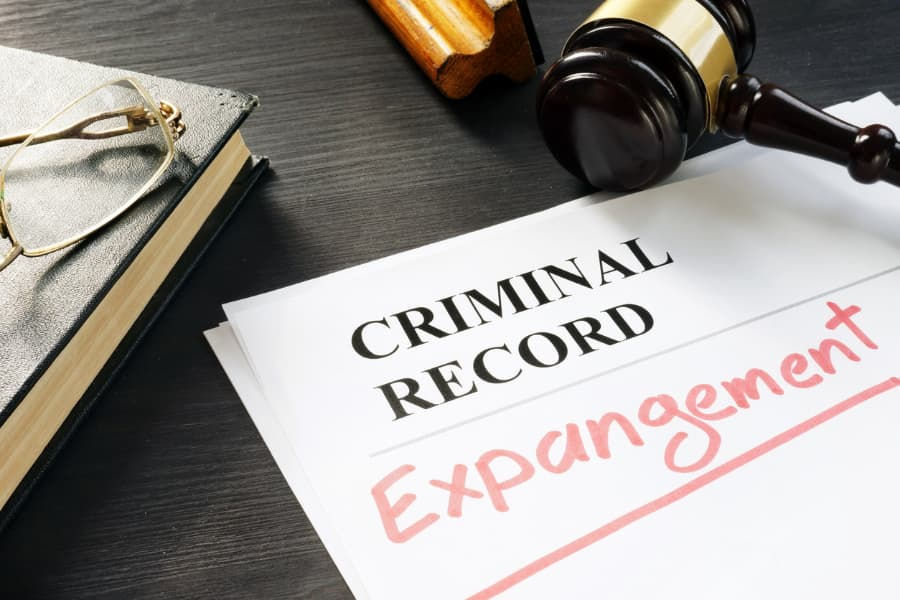Things You Should Know About Attempting to Expunge a Criminal Record
- Anita R. Price PC

- May 28, 2024
- 3 min read
Expunging a criminal record can be a crucial step toward rebuilding your life and moving forward after a conviction. While the process can be complex, understanding the key aspects of expungement can help you navigate it more effectively. This blog will explore what expungement entails, the eligibility requirements, the benefits, and the steps involved in the process.

What is Expungement?
Expungement is a legal process that allows individuals to have certain criminal records sealed or erased. Once a record is expunged, it is typically no longer accessible to the public, which can help individuals gain employment, secure housing, and restore their reputation.
Key Points:
Sealed Records: Expunged records are not destroyed but are sealed, meaning they are not accessible to most employers, landlords, and the general public.
Eligibility Variances: Eligibility for expungement varies by state and depends on the type of offense and the individual’s criminal history.
Eligibility Requirements
Not everyone with a criminal record is eligible for expungement. Eligibility criteria can vary significantly from state to state, but some common factors include:
1. Type of Offense
Generally, non-violent offenses, misdemeanors, and some felonies may be eligible for expungement. Violent crimes, sex offenses, and serious felonies are often excluded from expungement eligibility.
2. Time Since Conviction
There is usually a waiting period before you can apply for expungement. This period can range from a few years to over a decade, depending on the offense and state regulations. The clock typically starts ticking after you’ve completed your sentence, including probation or parole.
3. Completed Sentences
You must have completed all aspects of your sentence, including jail time, probation, parole, and payment of fines or restitution.
4. No Additional Offenses
Many states require that you have not been convicted of any new crimes during the waiting period before applying for expungement.
Benefits of Expunging a Criminal Record
Expunging a criminal record can have numerous benefits that can significantly impact your personal and professional life.
1. Improved Employment Opportunities
Many employers conduct background checks, and a criminal record can be a significant barrier to gaining employment. Expungement can remove this barrier, opening up more job opportunities.
2. Access to Housing
Landlords often screen potential tenants for criminal records. Expunging your record can improve your chances of securing housing.
3. Restored Civil Rights
In some states, expungement can restore certain civil rights, such as the right to vote, serve on a jury, or possess firearms.
4. Peace of Mind
Expungement can provide a sense of closure and peace of mind, knowing that your past mistakes are no longer publicly accessible.
Steps to Expunge a Criminal Record
The process of expunging a criminal record can be complex and involves several steps. While these steps can vary by state, the general process includes:
1. Determine Eligibility
Research your state’s laws to determine if your conviction is eligible for expungement. You may want to consult with an attorney who specializes in expungement to help clarify your eligibility.
2. Obtain Your Criminal Records
Gather all relevant documents, including your criminal record, court records, and any other documentation related to your conviction. This information is essential for accurately completing your expungement petition.
3. File a Petition
Complete the required forms to file a petition for expungement. These forms typically include detailed information about your conviction and reasons for requesting expungement. Filing fees may apply.
4. Serve the Petition
Serve the petition on the prosecutor’s office and other required parties, such as the court where you were convicted. This step ensures that all relevant parties are informed of your expungement request.
5. Attend a Hearing
In many cases, a court hearing will be scheduled where you can present your case for expungement. Be prepared to explain why you deserve to have your record expunged and how you’ve rehabilitated since the conviction.
6. Receive a Decision
After the hearing, the judge will make a decision on your expungement request. If approved, your record will be sealed, and you’ll receive documentation confirming the expungement.
Challenges and Considerations
While expungement can offer significant benefits, it’s essential to be aware of potential challenges and considerations.
1. Legal Complexity
The expungement process can be legally complex and may require the assistance of an attorney to navigate successfully.
2. Time and Cost
The process can be time-consuming and may involve court fees, attorney fees, and other costs.
3. Limitations
Even if your record is expunged, certain entities, such as law enforcement and government agencies, may still have access to your sealed records.
Expunging a criminal record can be a transformative step toward a brighter future, offering improved opportunities for employment, housing, and personal growth. Understanding the eligibility requirements, benefits, and steps involved in the expungement process is crucial for successfully navigating this legal journey. Consulting with our team will provide valuable guidance and increase your chances of a successful expungement.



